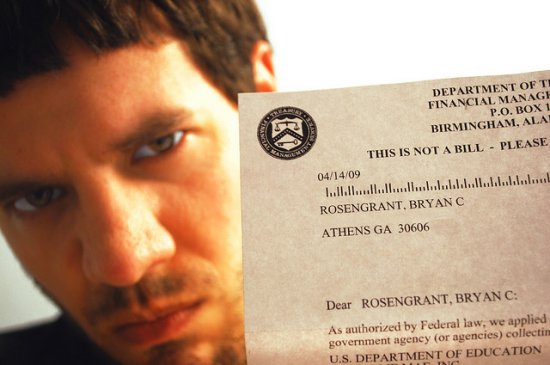
#1 Seek an immediate deferment or forbearance
One of the quickest way to shut down student loan collections is to get a deferment or forbearance. Simply, either deferment or forbearance will give you permission to stop making payments temporarily. Deferment puts a short-term halt to both your payments and your interest accrual. Forbearance puts a stop to the payments for a while, but the interest continues to accrue. To get a deferment or forbearance, you must apply to your loan servicer. You can generally qualify if you:
- Cannot find full-time employment and/or
- Are experiencing economic hardship and/or
- Are on active duty for the military and/or
- Are experiencing a serious illness
#2 Consider a consolidation
Consolidating your federal student loans is a one-time only option. Once you consolidate, you never can again, but the good news is that it will get you out of default immediately and can vastly improve your credit score. Once you consolidate, you can then also try and get on an income-sensitive repayment plan. These two are not mutually exclusive. You can get on an income sensitive-repayment plan without a consolidation.
If you are not in default, it's best to consider option #3 below and save consolidation in case you get into a default situation later. To request a consolidation, contact your lender for more information and to apply. Also, one thing to remember – if you are eligible for any sort of forgiveness program like Public Service Loan Forgiveness, consolidating may make some of your loans ineligible, so be sure to look closely at forgiveness program parameters before you take this step.
#3 Get on an income-sensitive payment plan
The two main income-sensitive repayment plans are Income Based Repayment (IBR) and Pay As You Earn (PAYE). Currently, income based repayment is open to most any federal student loan borrower and caps your payments at 15% of your disposable income. This can be significantly lower than what you're paying now (or what you should be paying now, but can't afford to). More recent graduates may qualify for Pay As You Earn which caps payments at 10% of disposable income.
It's anticipated that new rules will expand the Pay As You Earn program to many more borrowers as of December 31, 2015. After 25 years of payments under IBR and 20 years under PAYE, remaining balances will be forgiven, although, as of now, the forgiveness will be taxable. Even so, the savings should outweigh the tax consequences. To find out more, contact your lender.
#4 Consider a job change
Some jobs come with access to loan forgiveness programs. Government jobs, teaching jobs, public service sector jobs, nursing jobs and many other jobs offer student loan forgiveness benefits. Click here to read more about Public Service Loan Forgiveness. Also, certain colleges offer a forgiveness component if you're employed in a lower earning sector that's serving the public. Check out your college website or contact the alumni office to inquire about availability of these programs.
#5 Consider bankruptcy
It's a myth that student loans cannot be forgiven in bankruptcy. It's just that very few people try. Statistically, you are more likely to have your request for student loan discharge approved if you have a permanent disability or ongoing illness, are chronically unemployed or are earning a low income with little likelihood that it will increase in the foreseeable future. There's an extra step that must be taken to seek forgiveness of student loan debt in bankruptcy called an Adversary Proceeding - make sure your bankruptcy attorney has experience filing these.
And even if you can't get your student loans forgiven in bankruptcy, by using bankruptcy to shed other debt you're struggling to pay, you can free up money to help you tackle your school debt. This strategy will work best when you try and combine it with a more affordable repayment plan like IBR or PAYE. Remember, if you're behind on your payments, the government can garnish your wages, take your tax refunds and trash your credit rating. And federal student loans have no statute of limitations, so they will never go away until you address and correct the problem.
